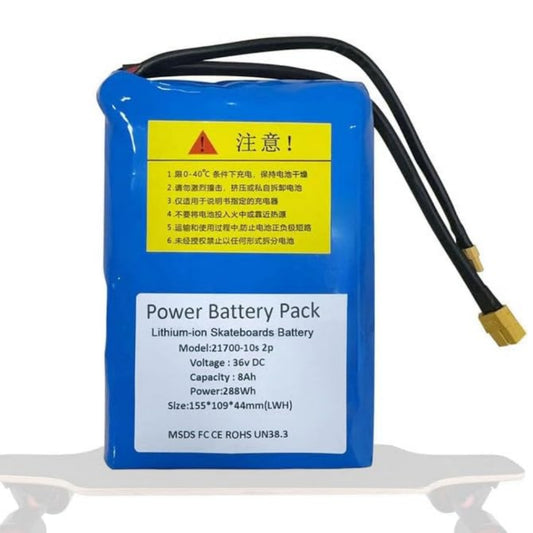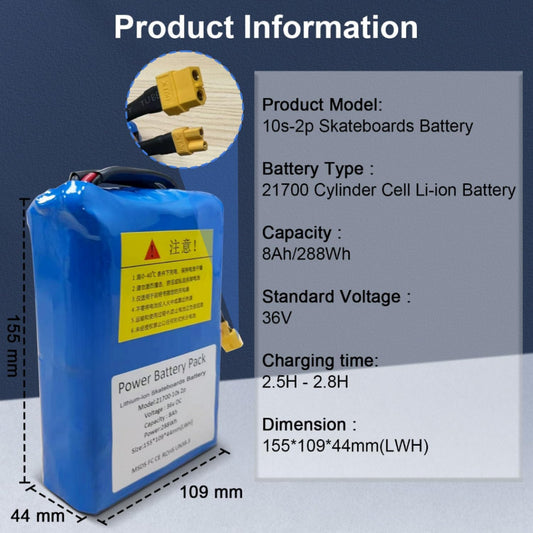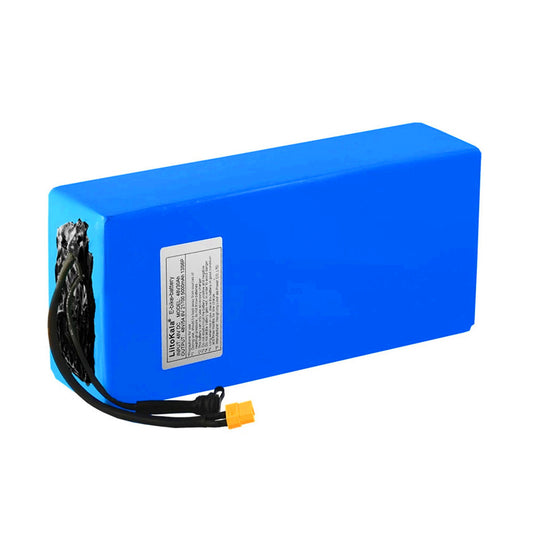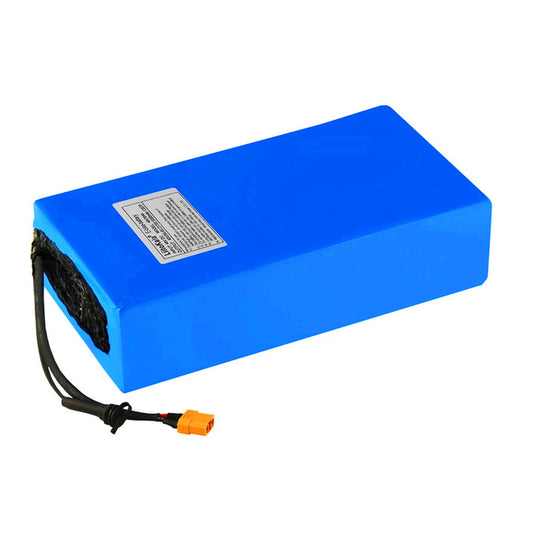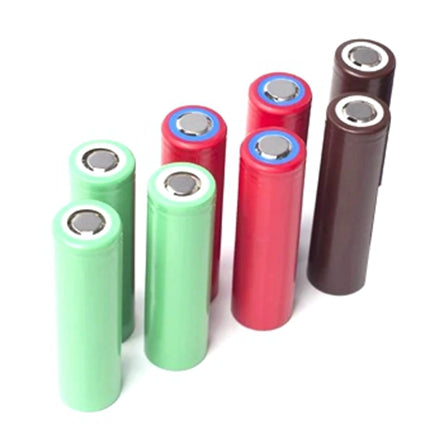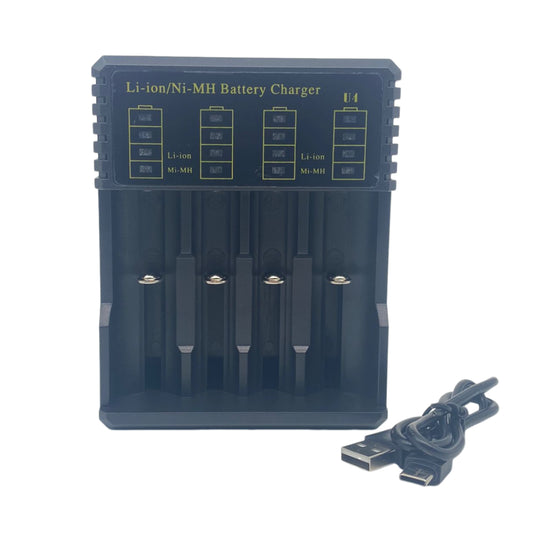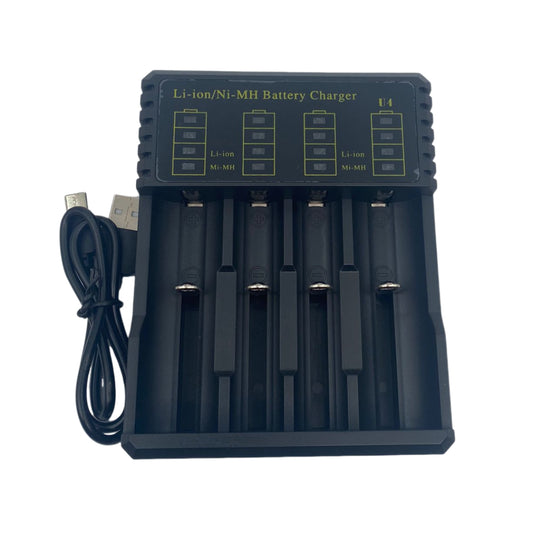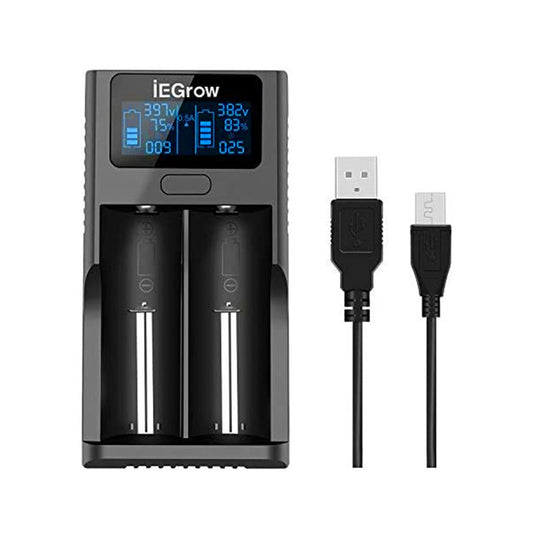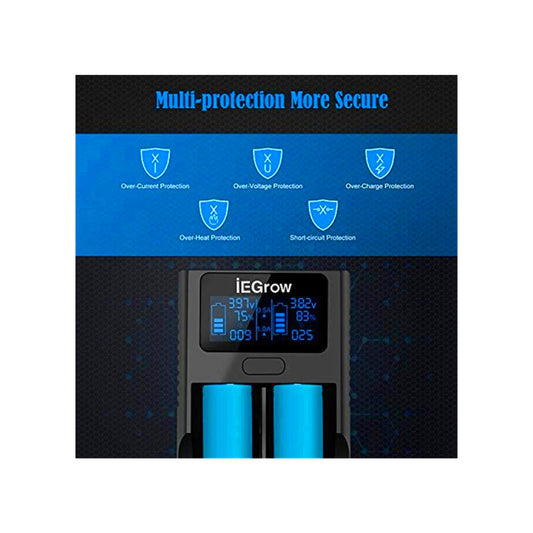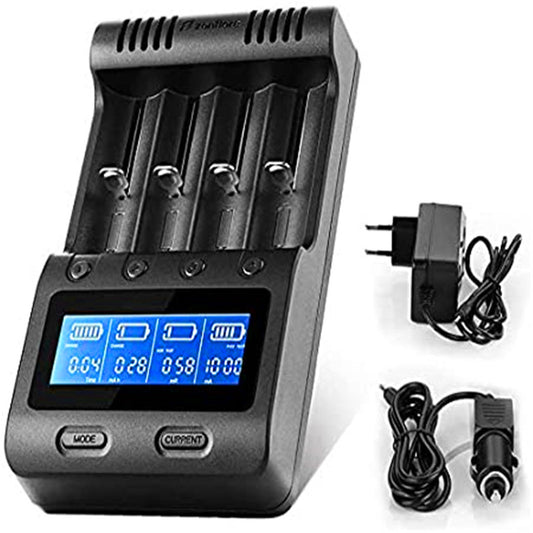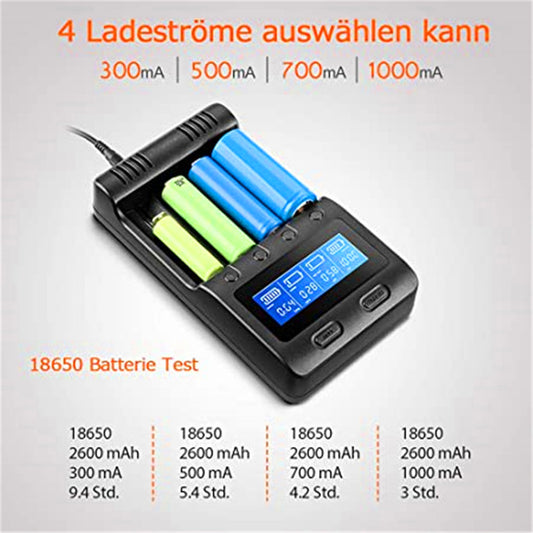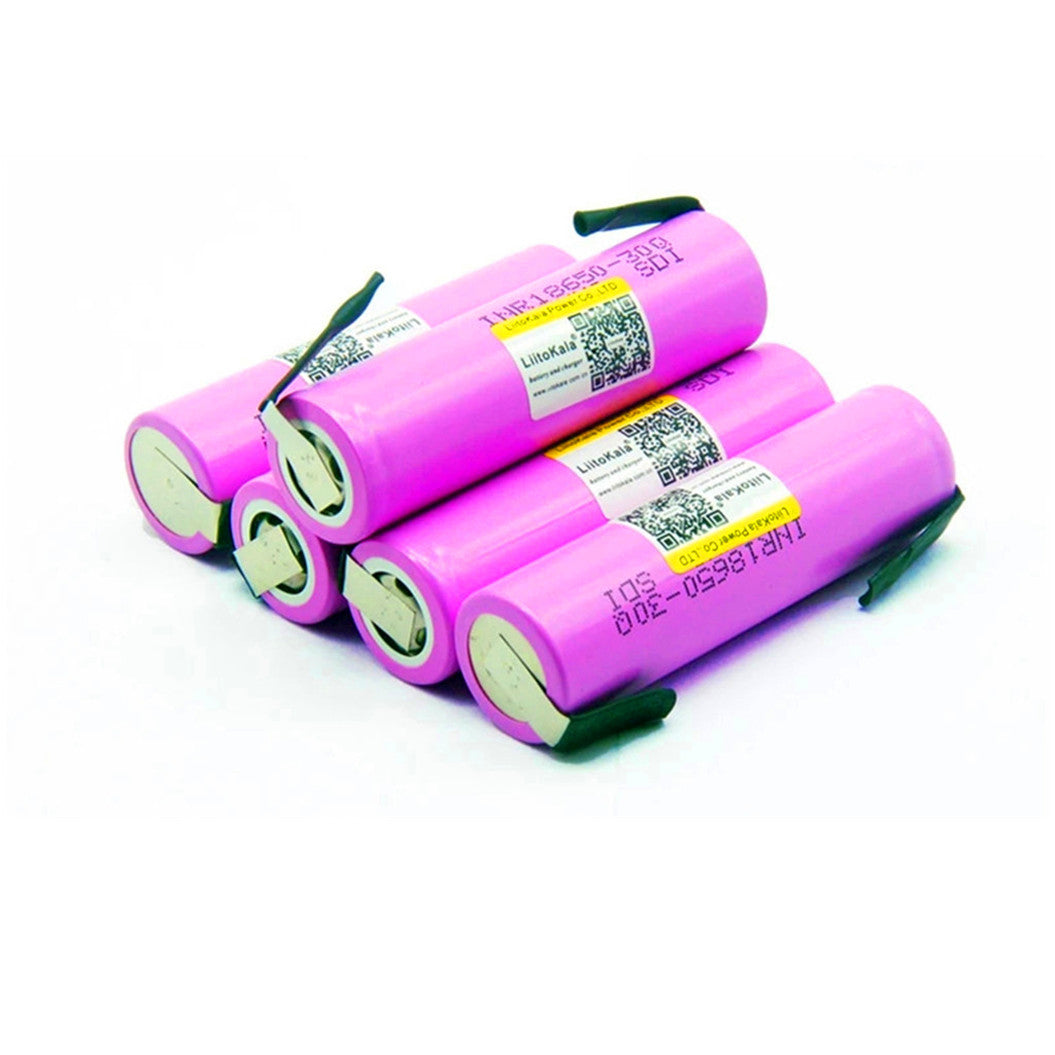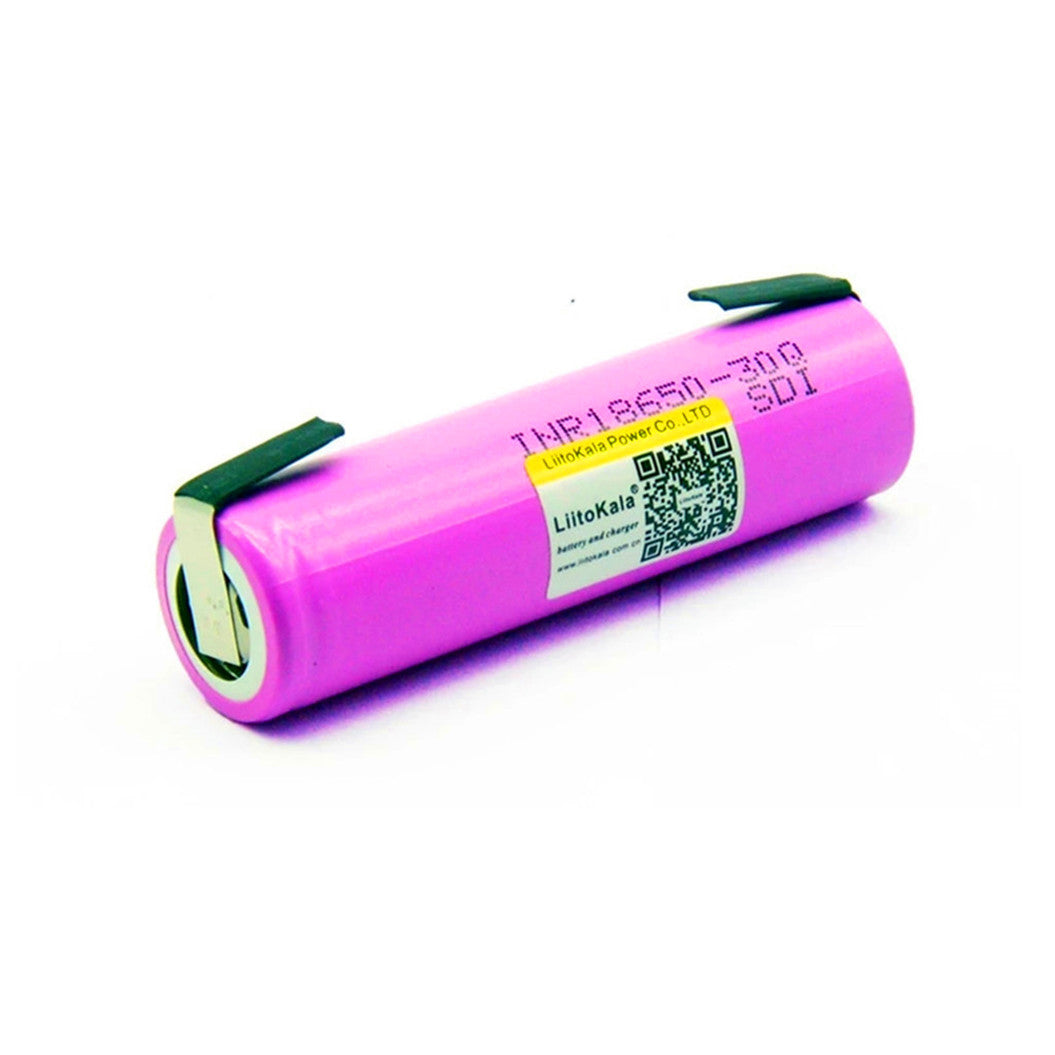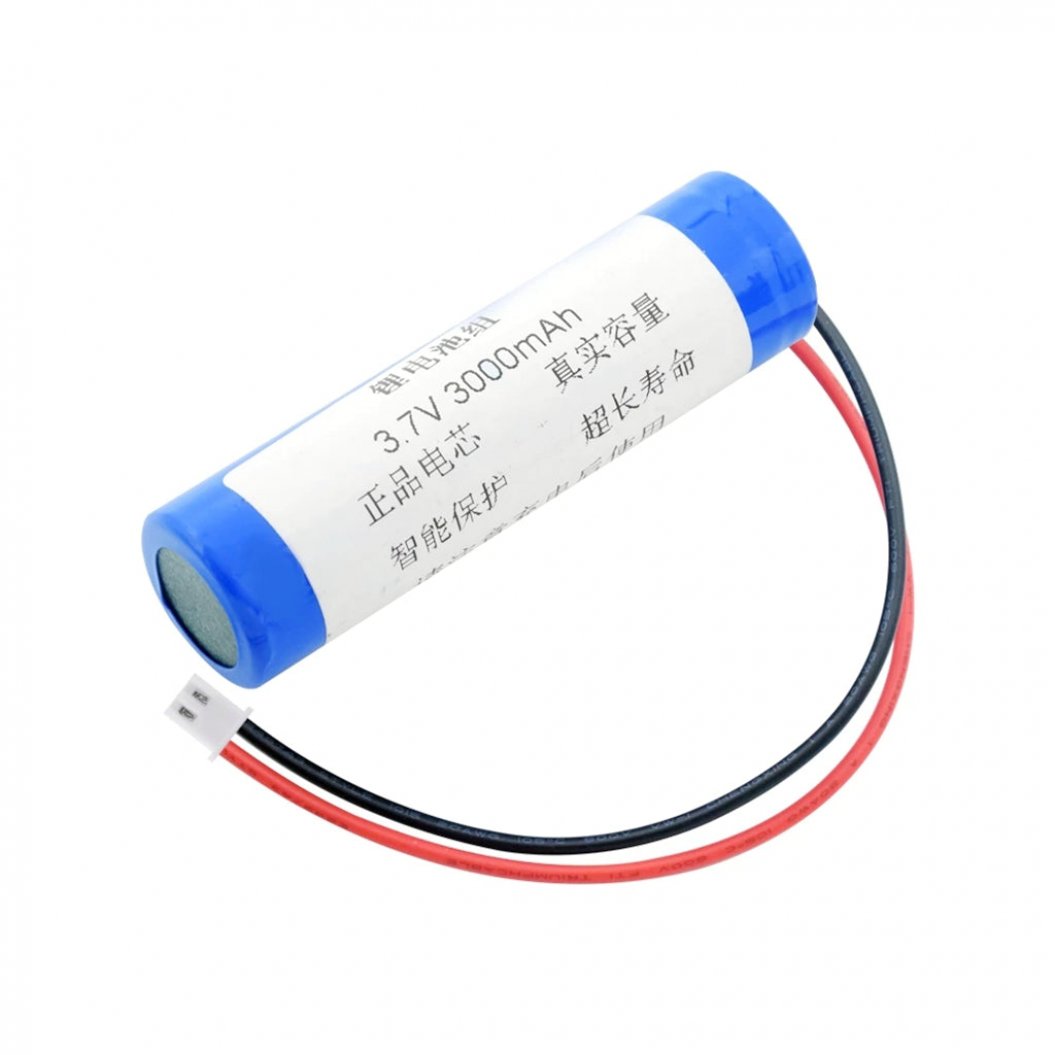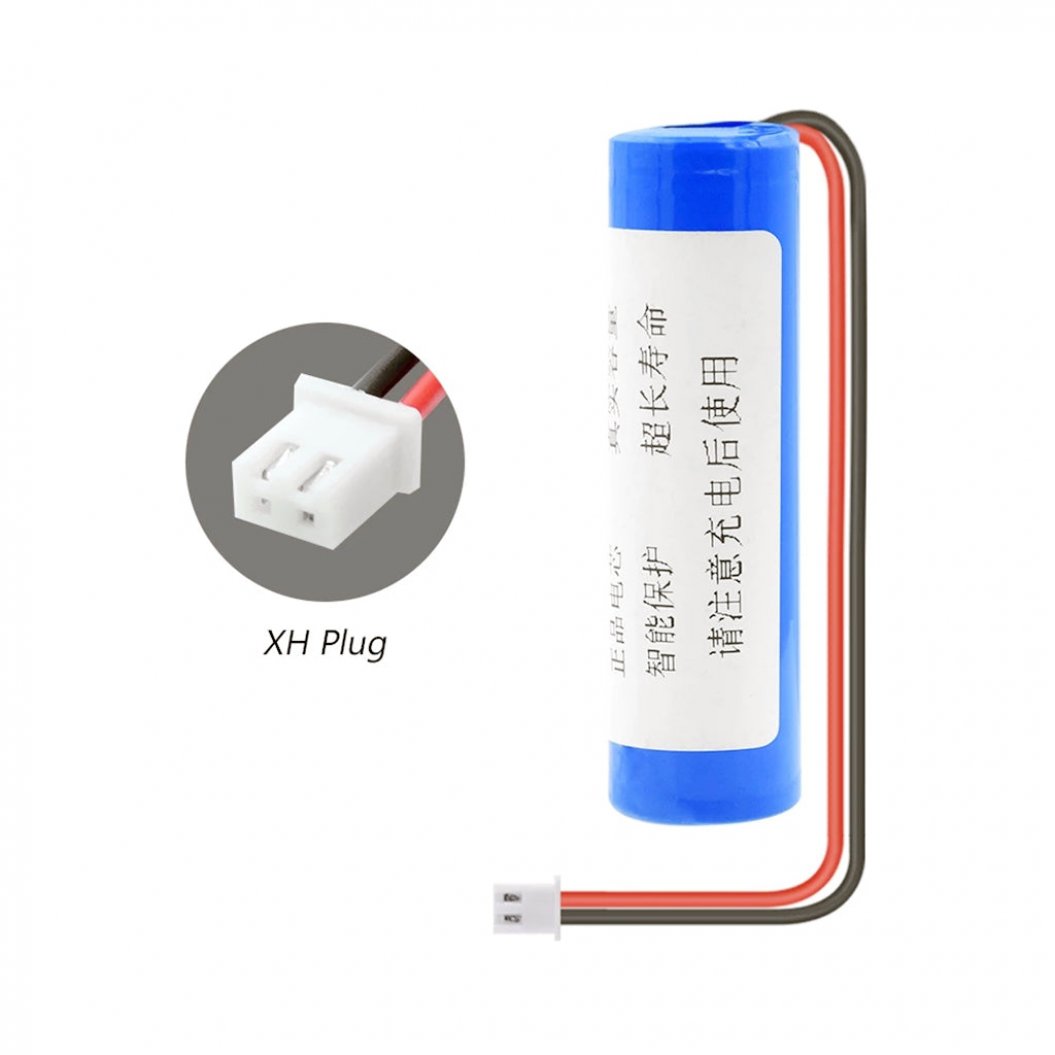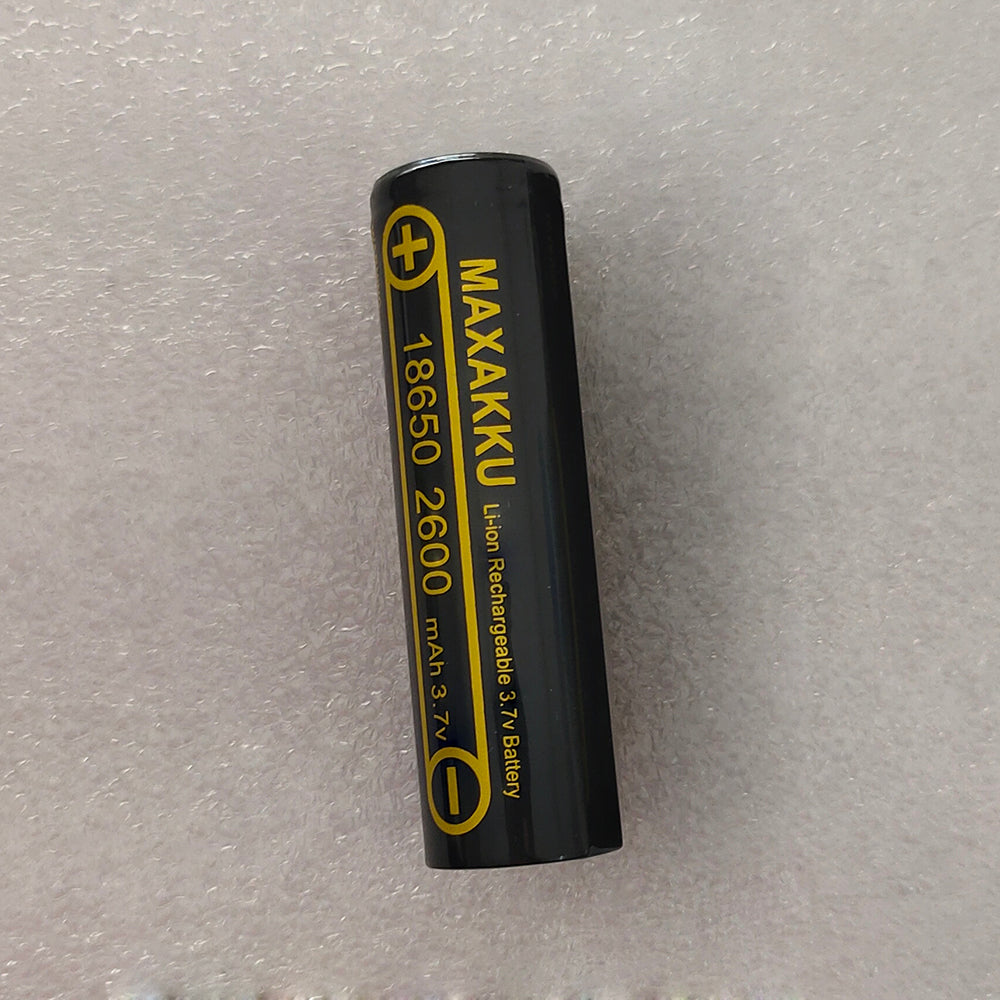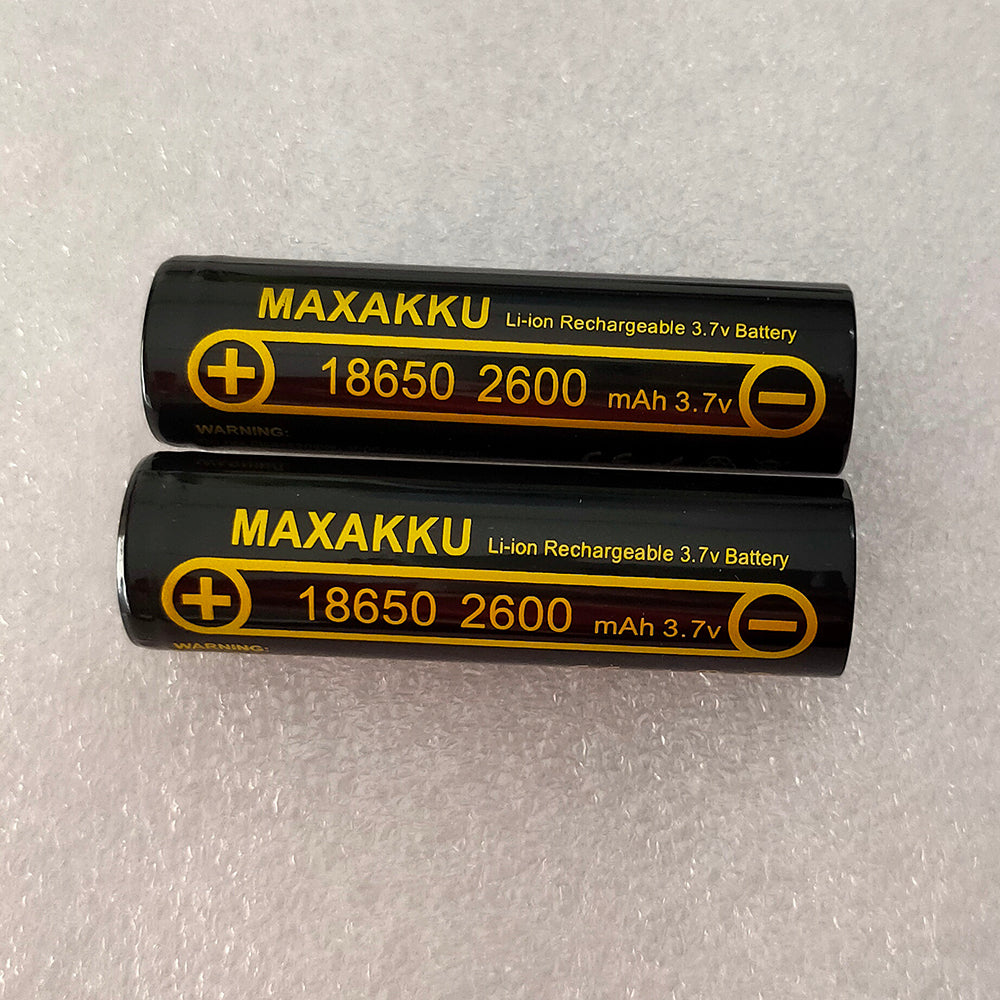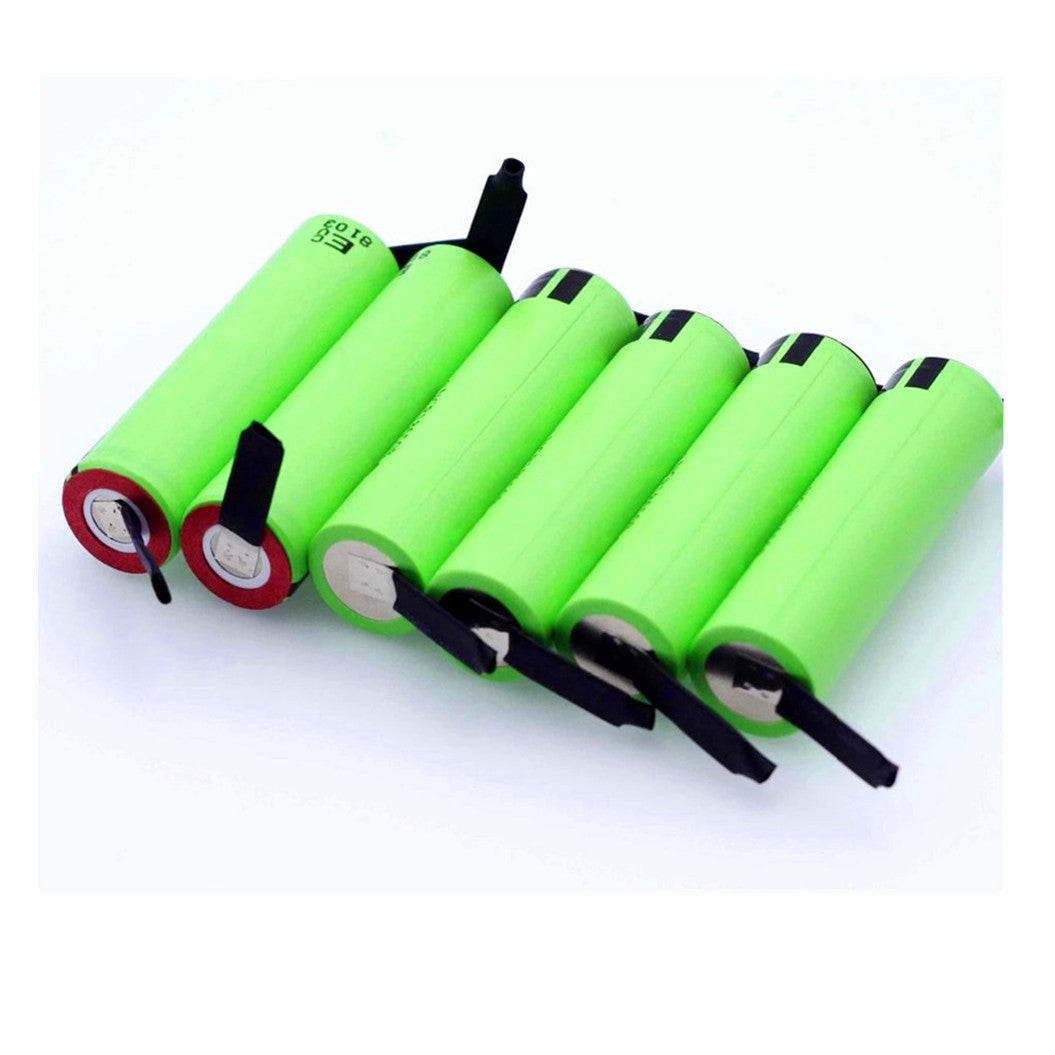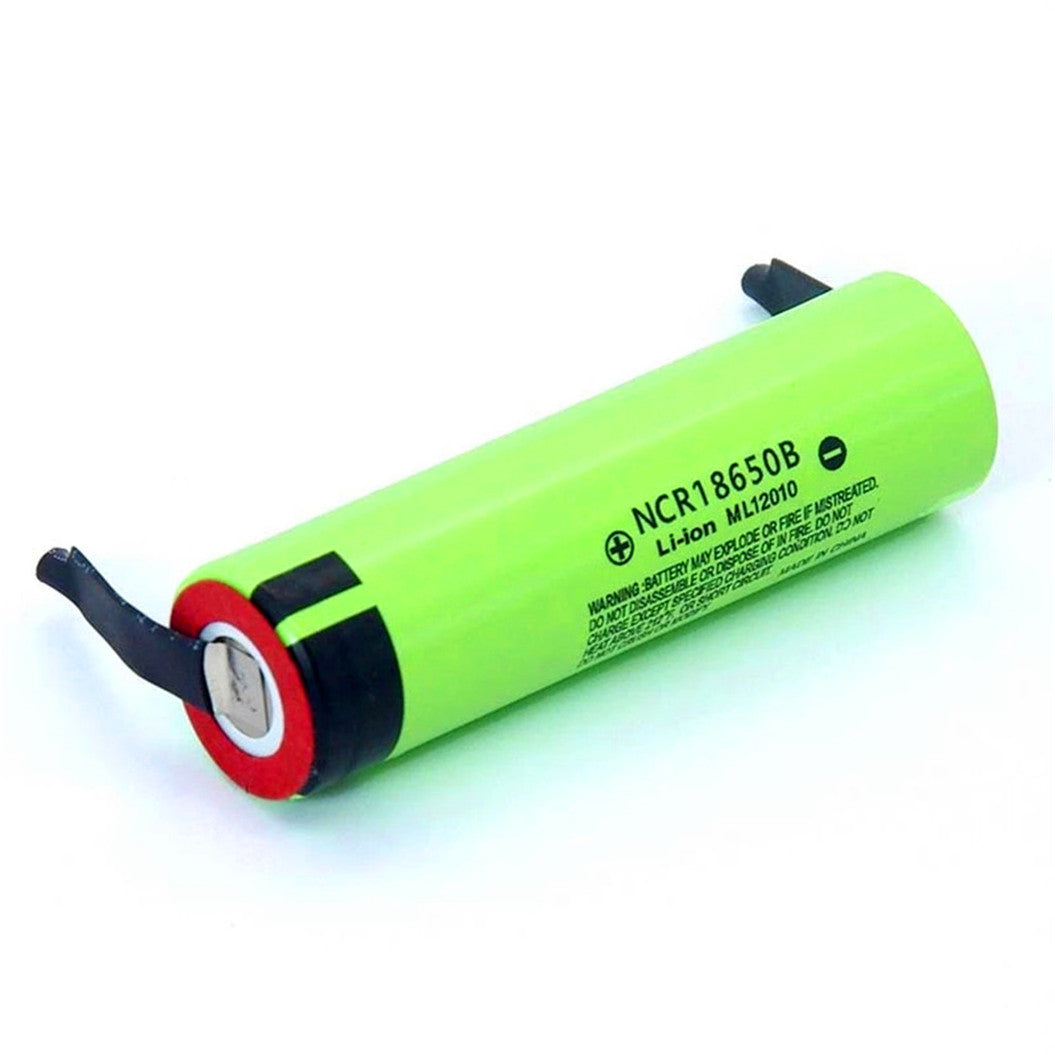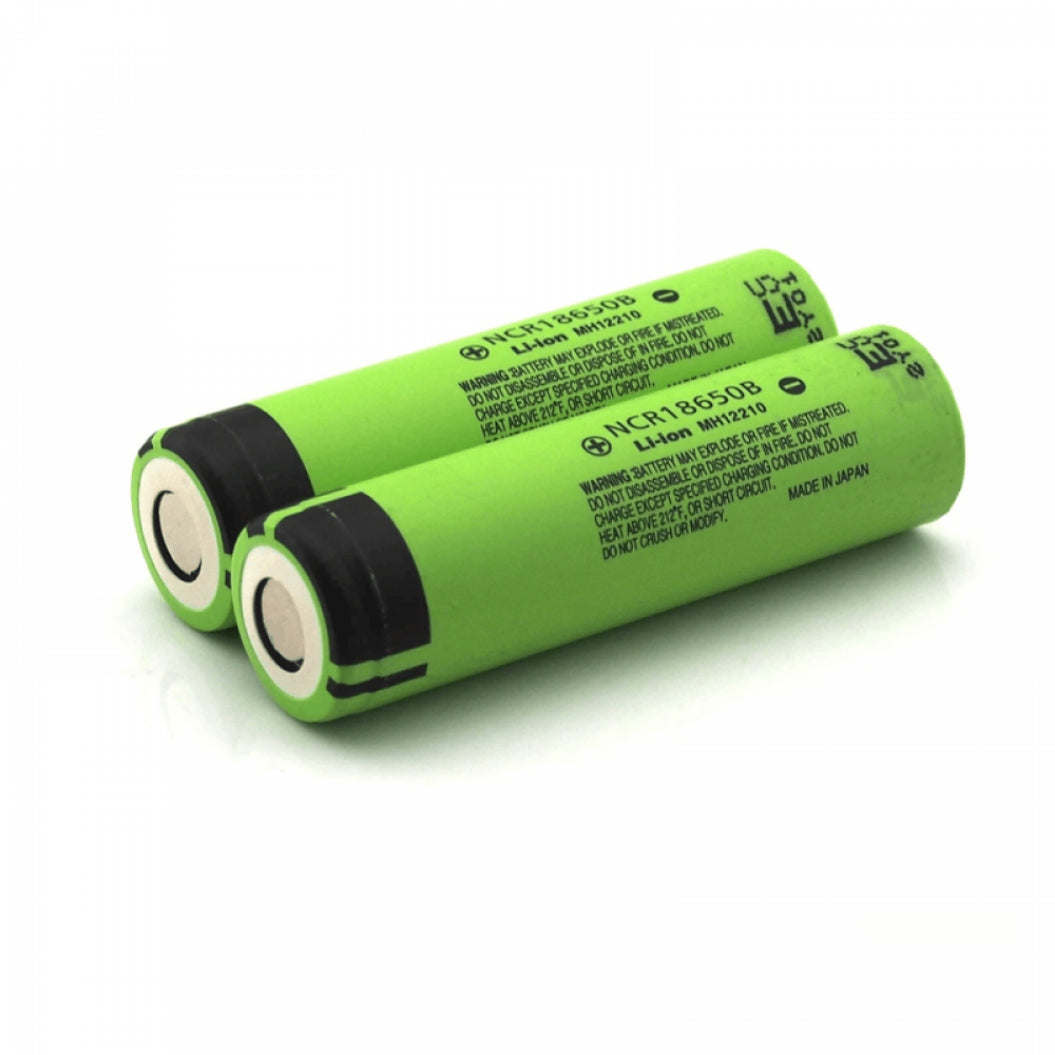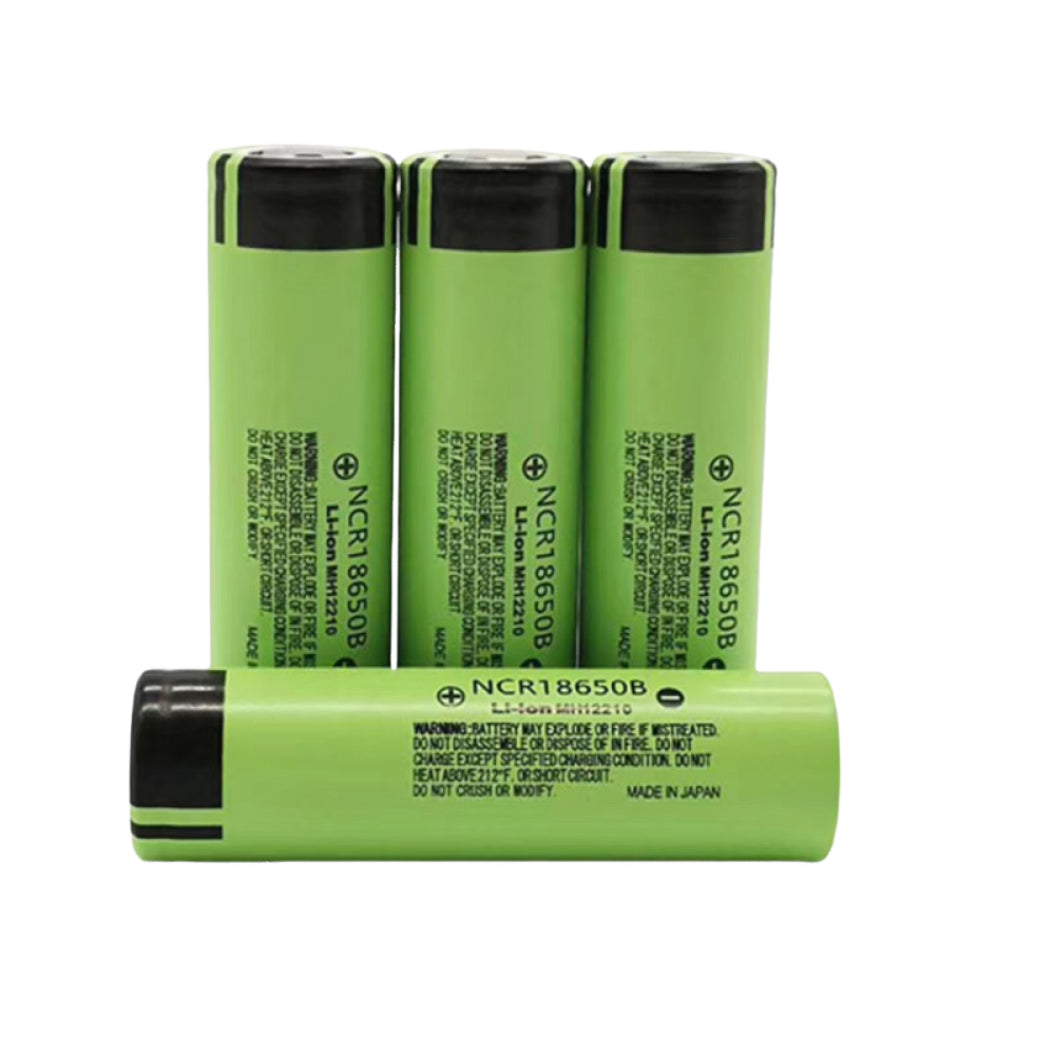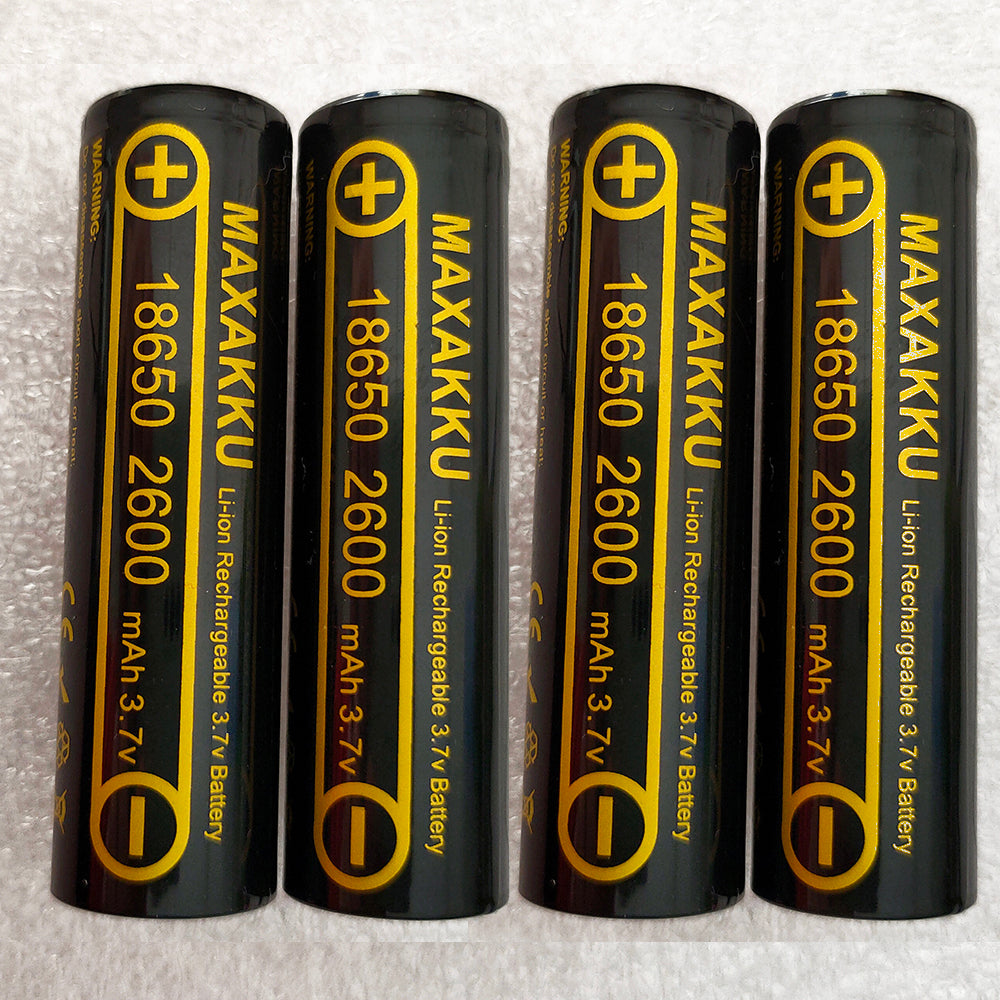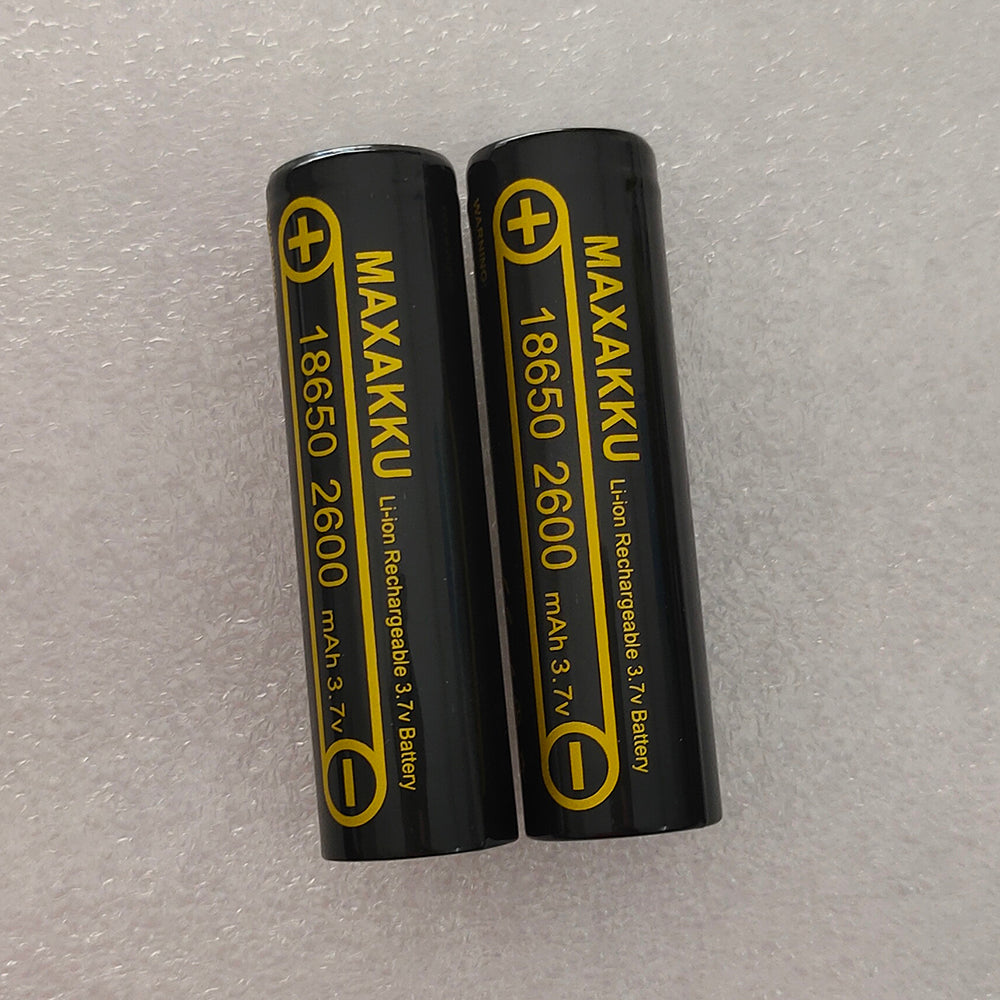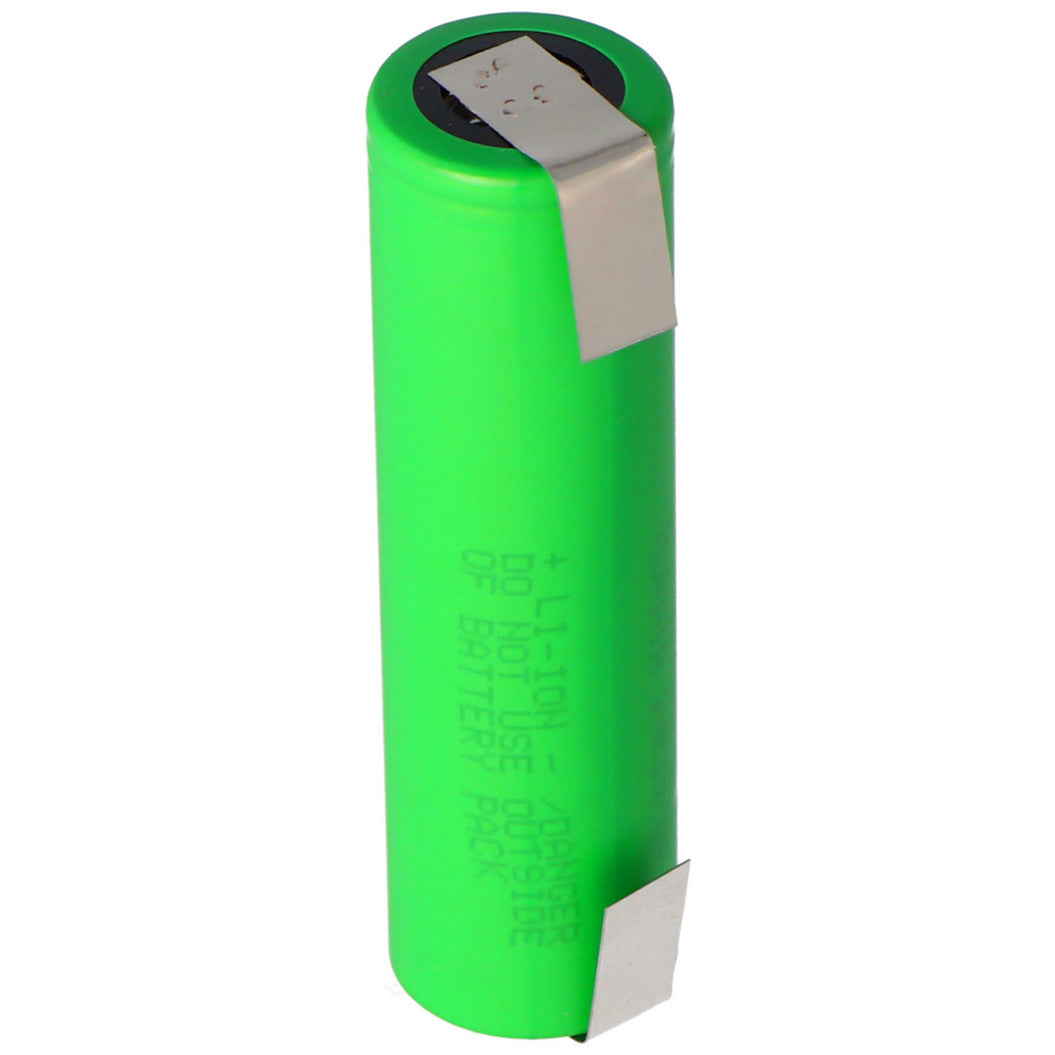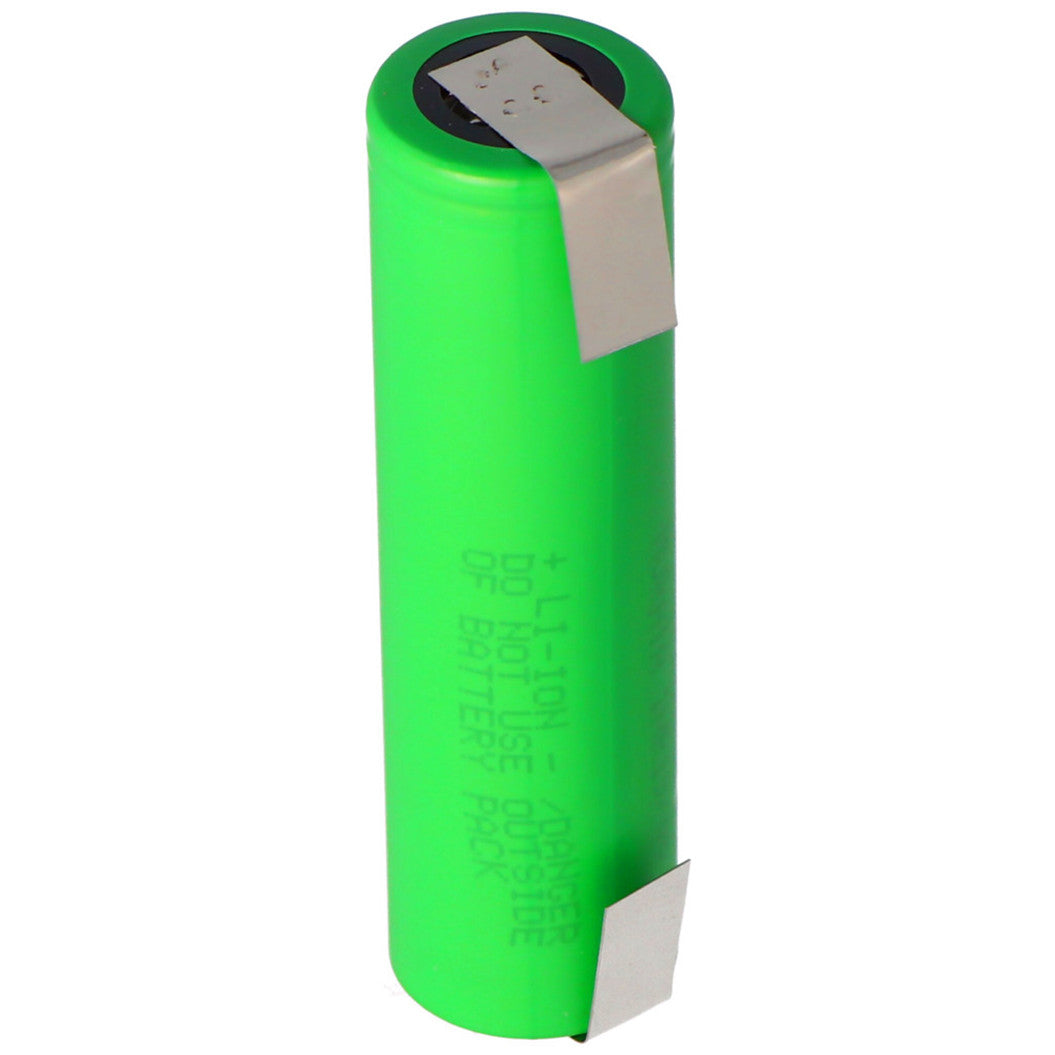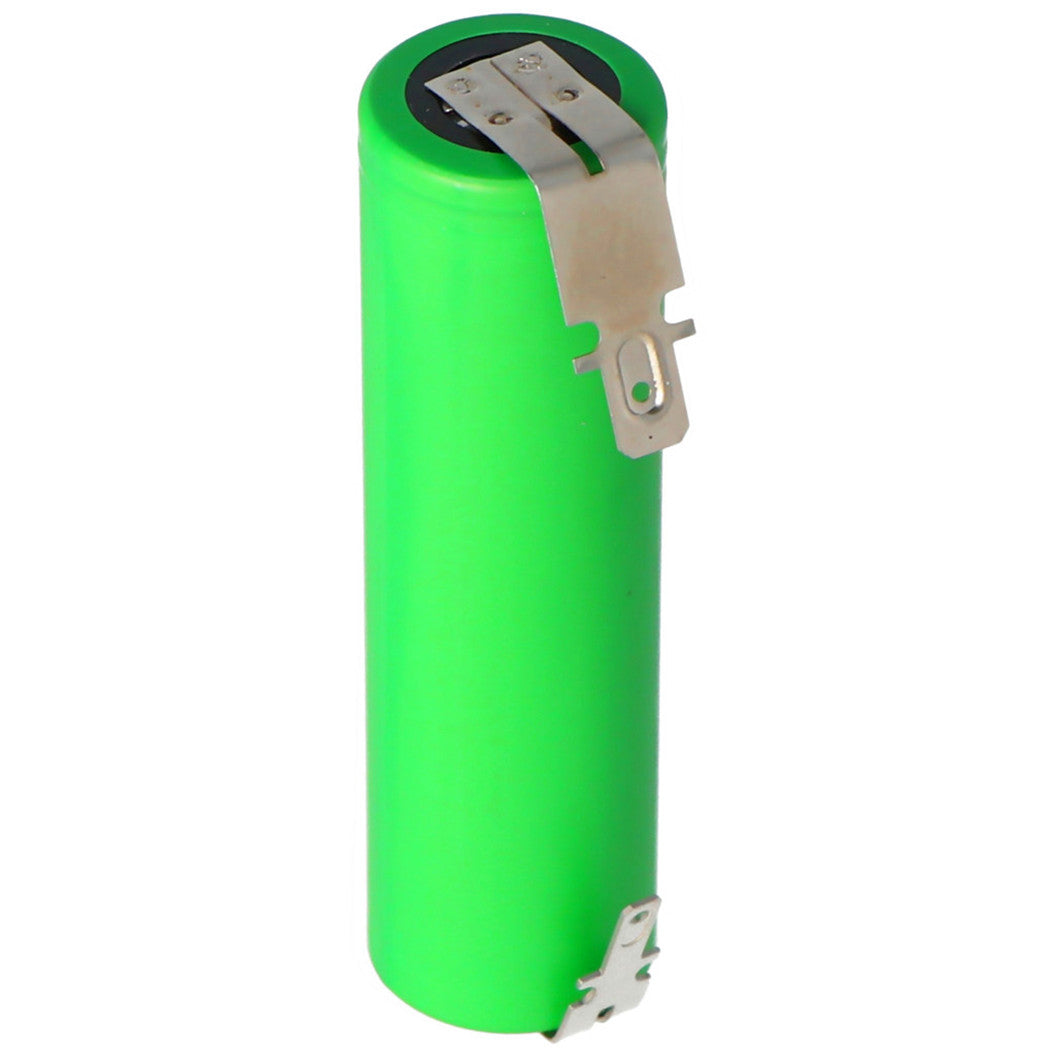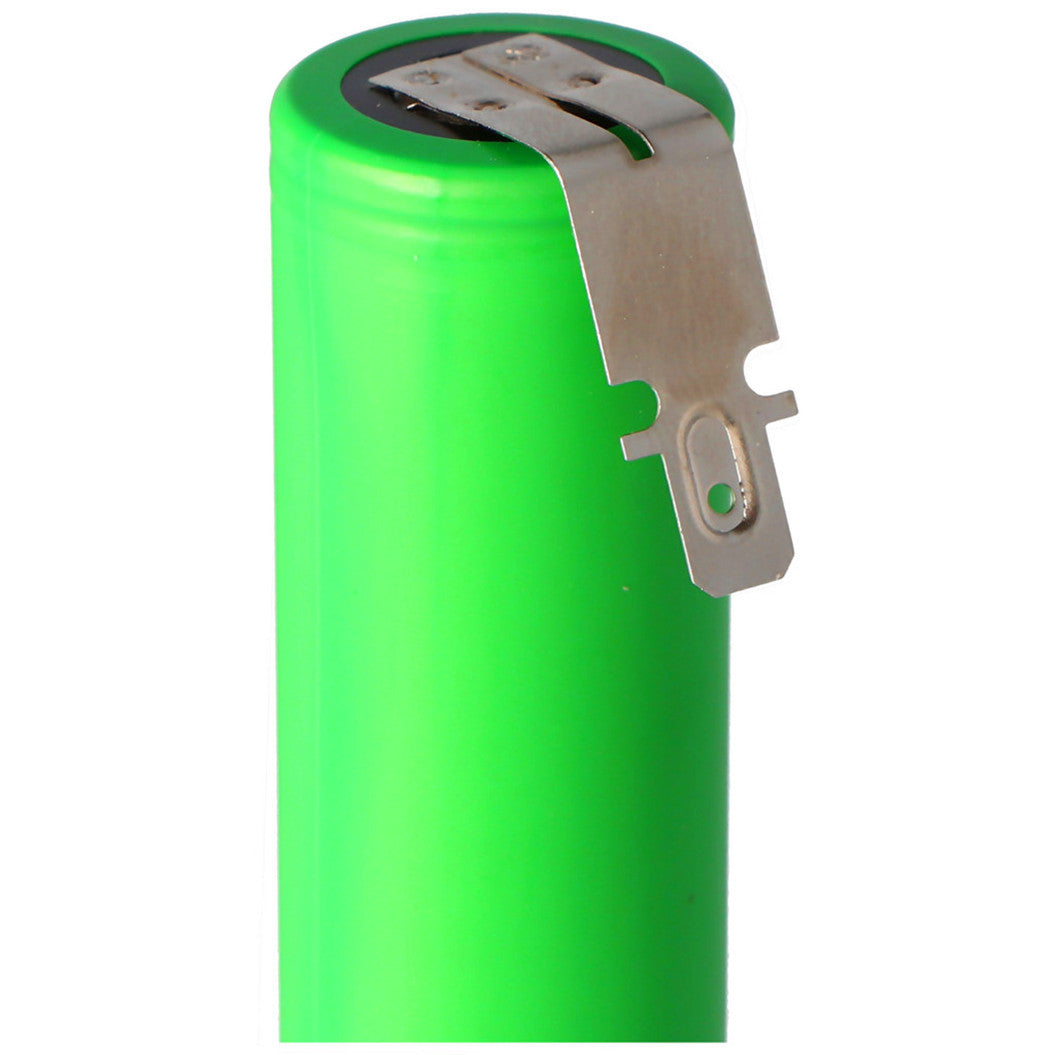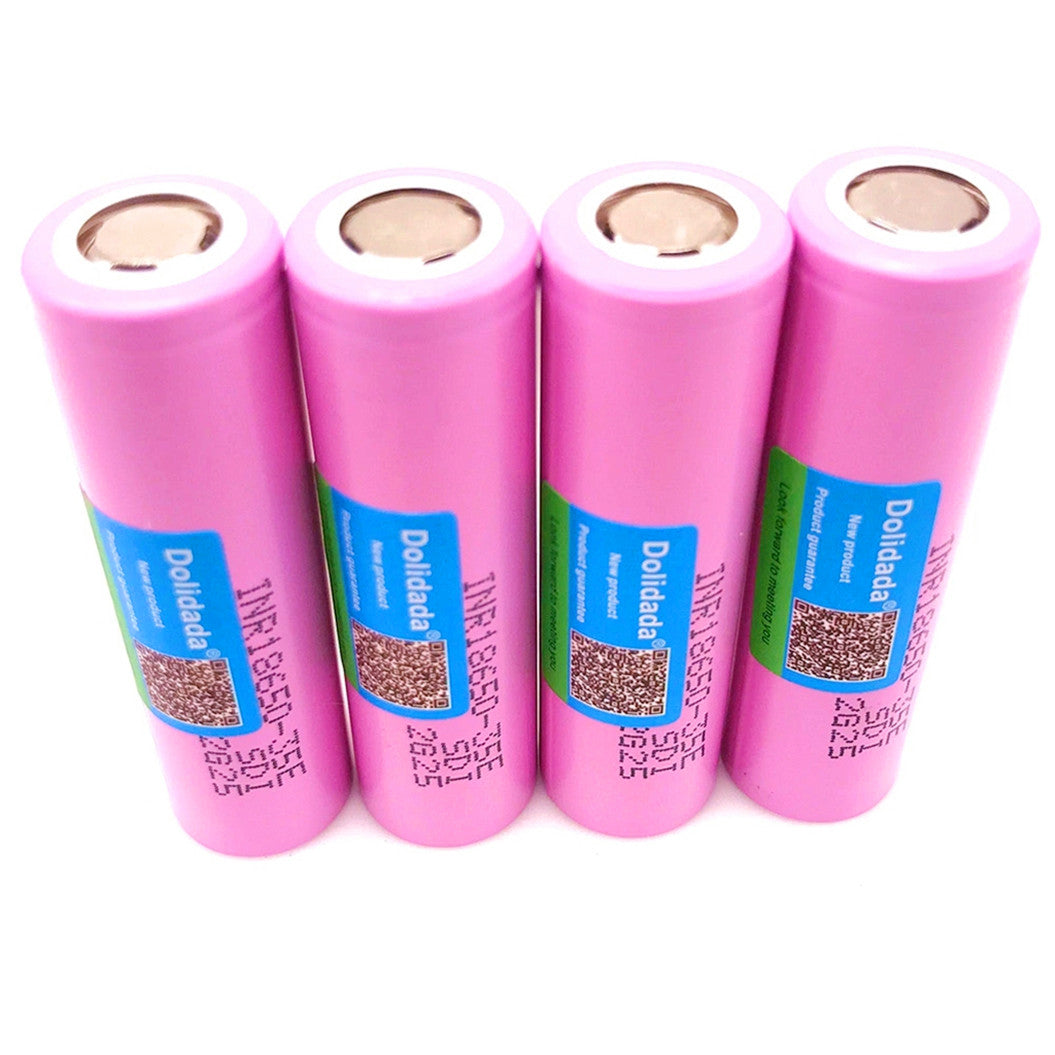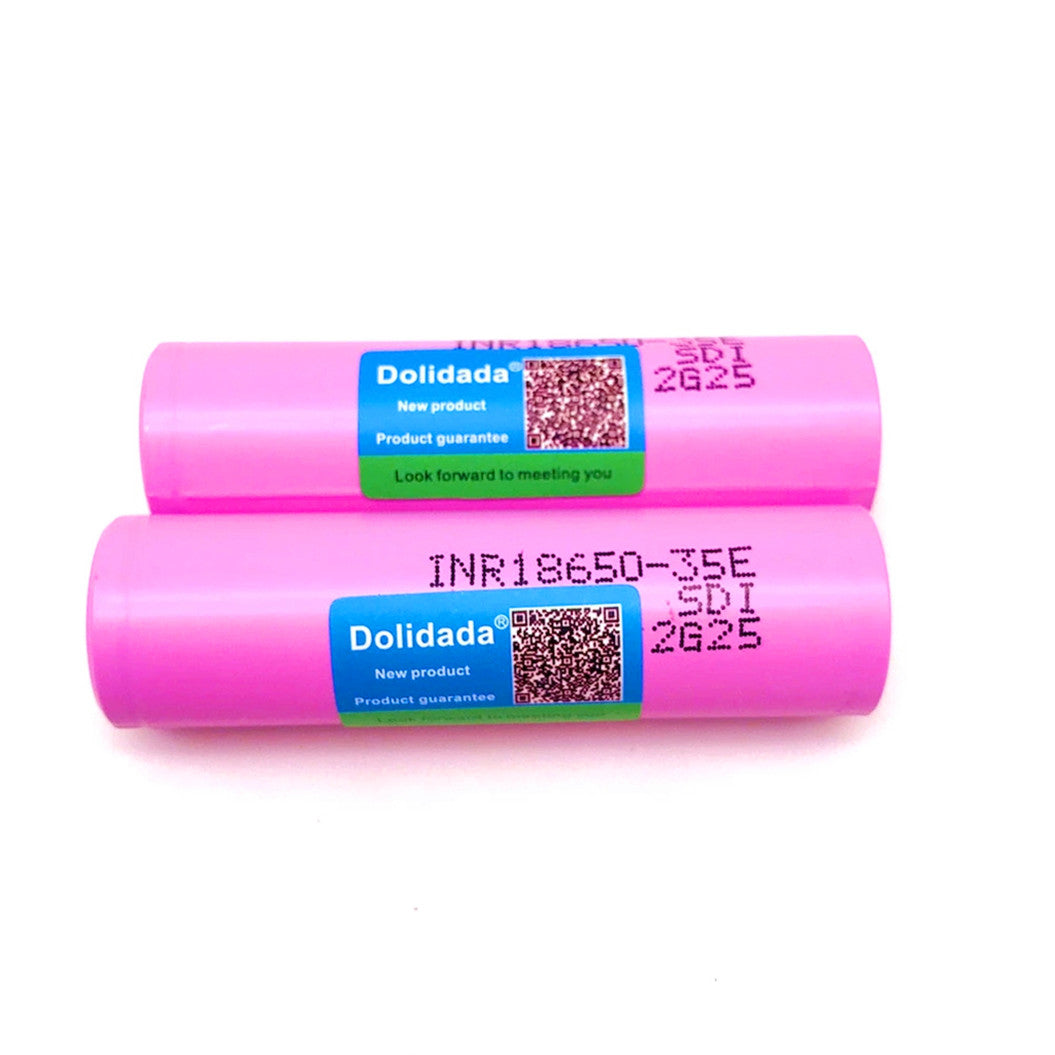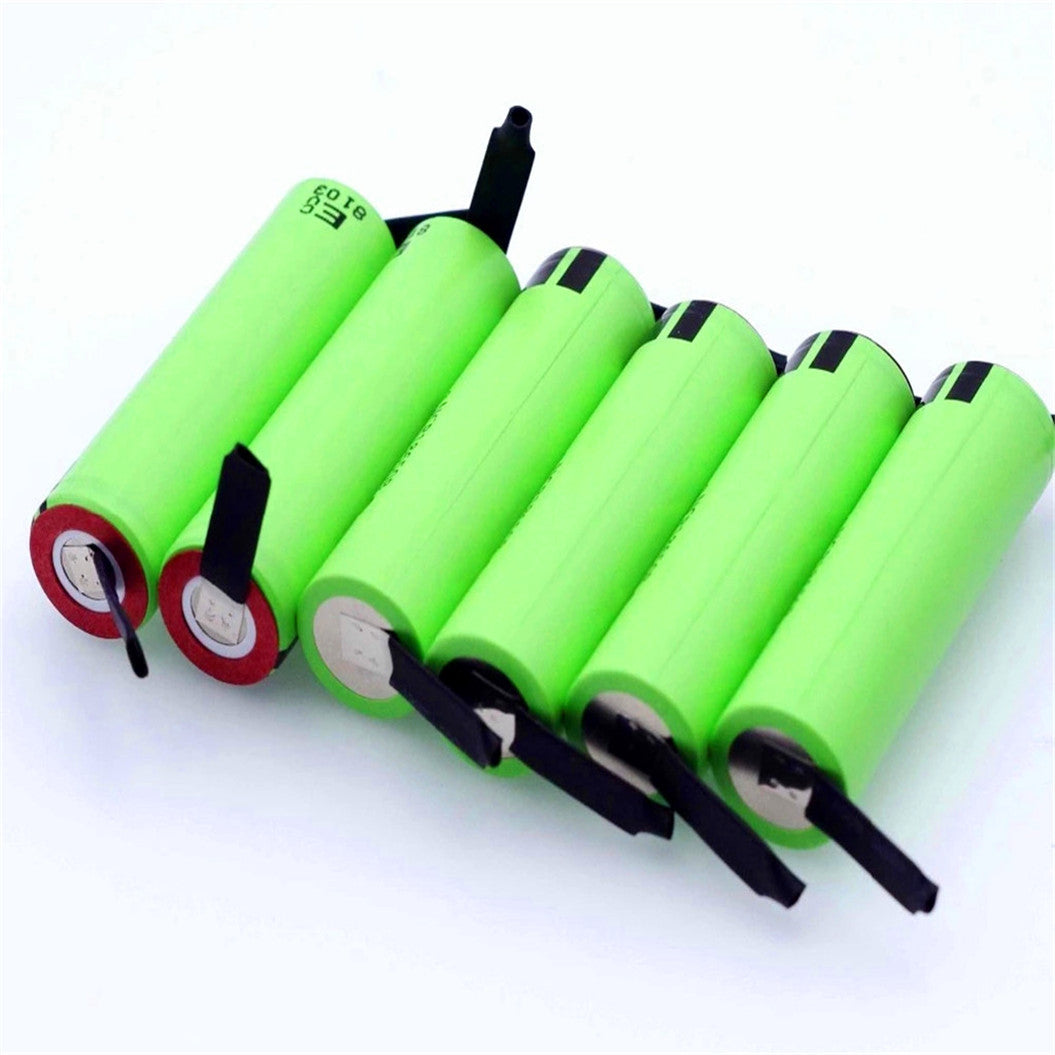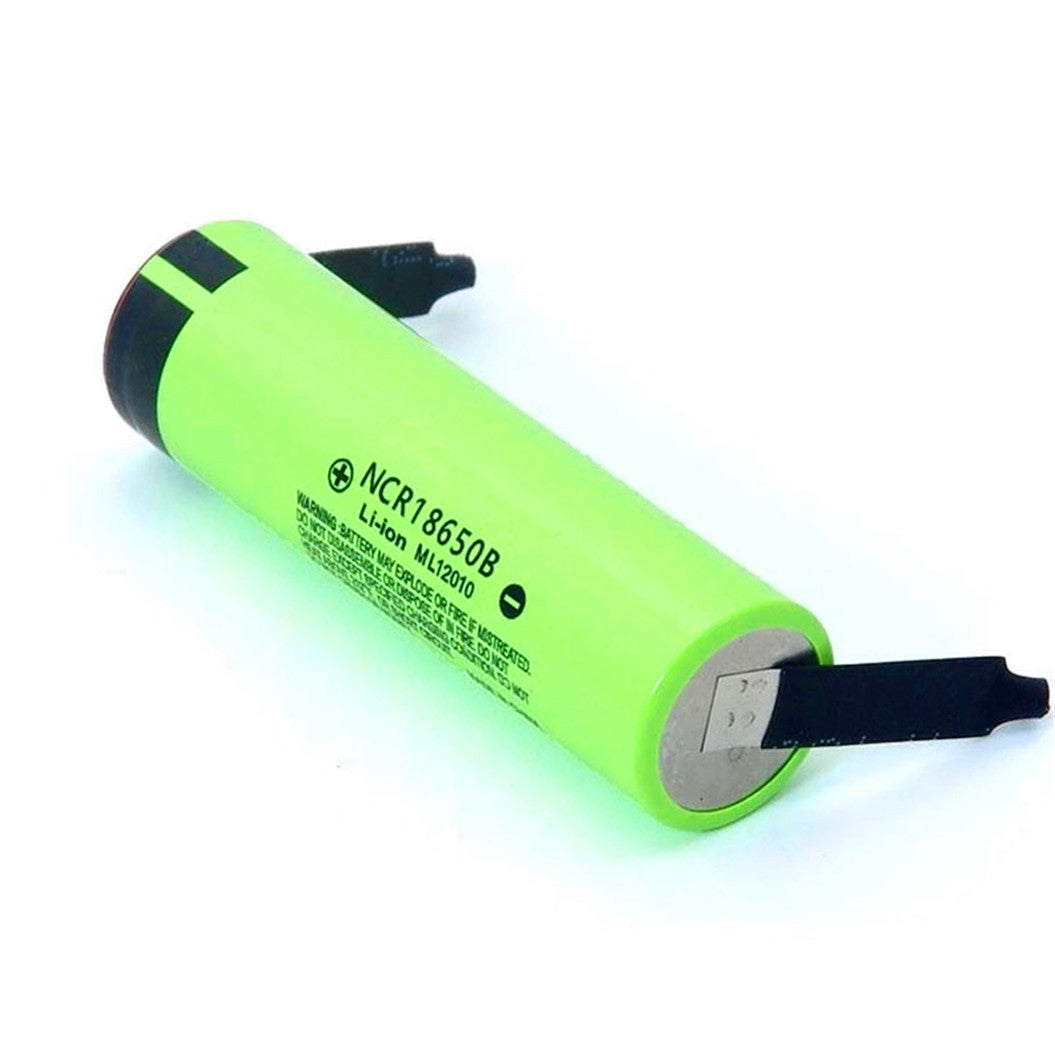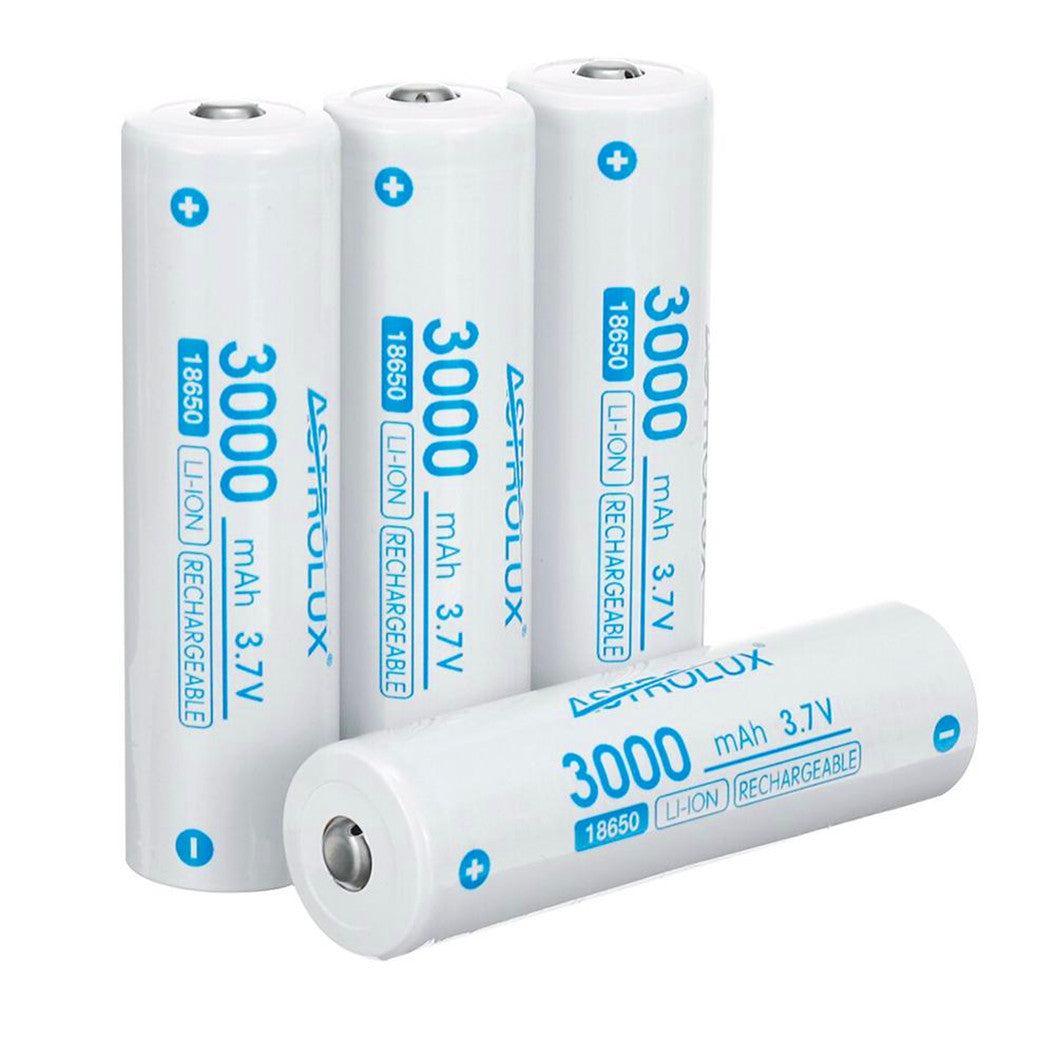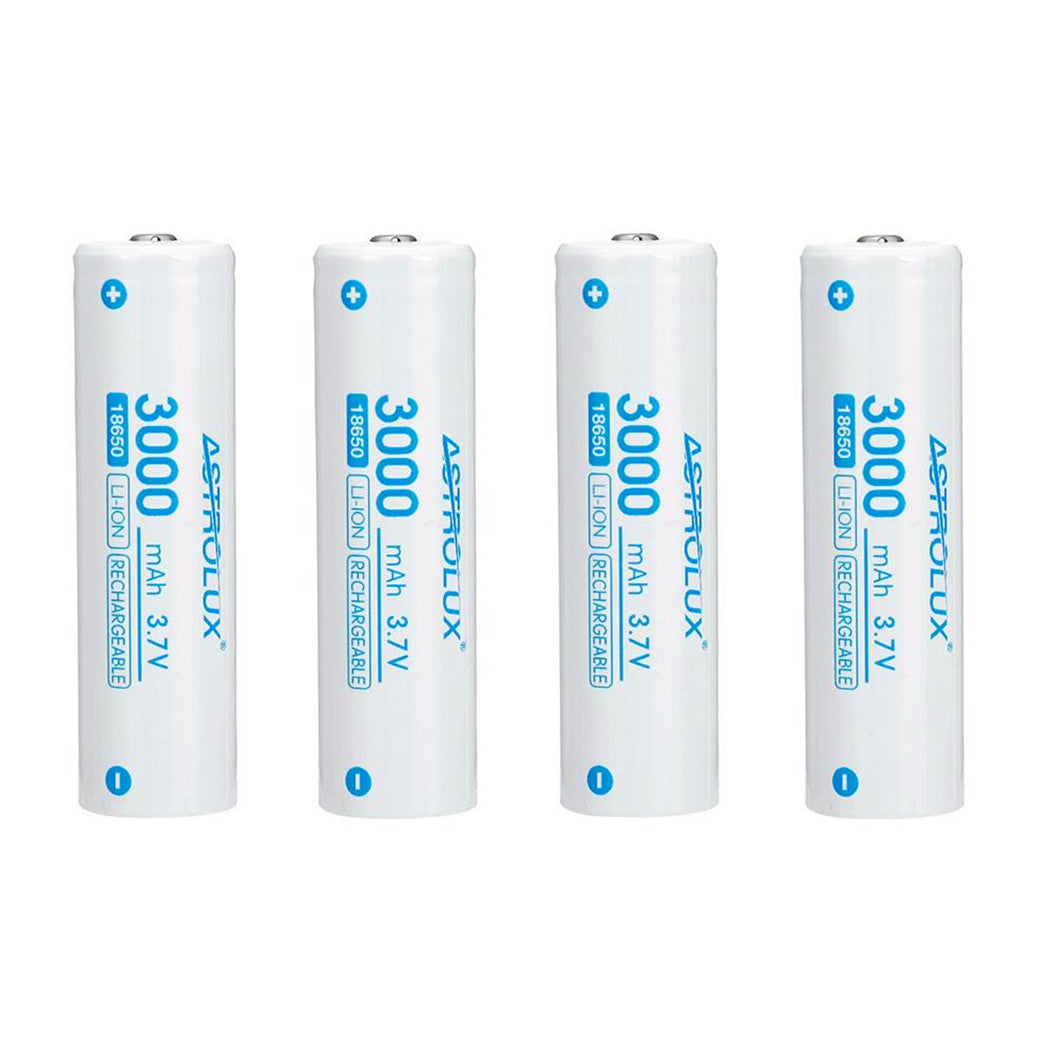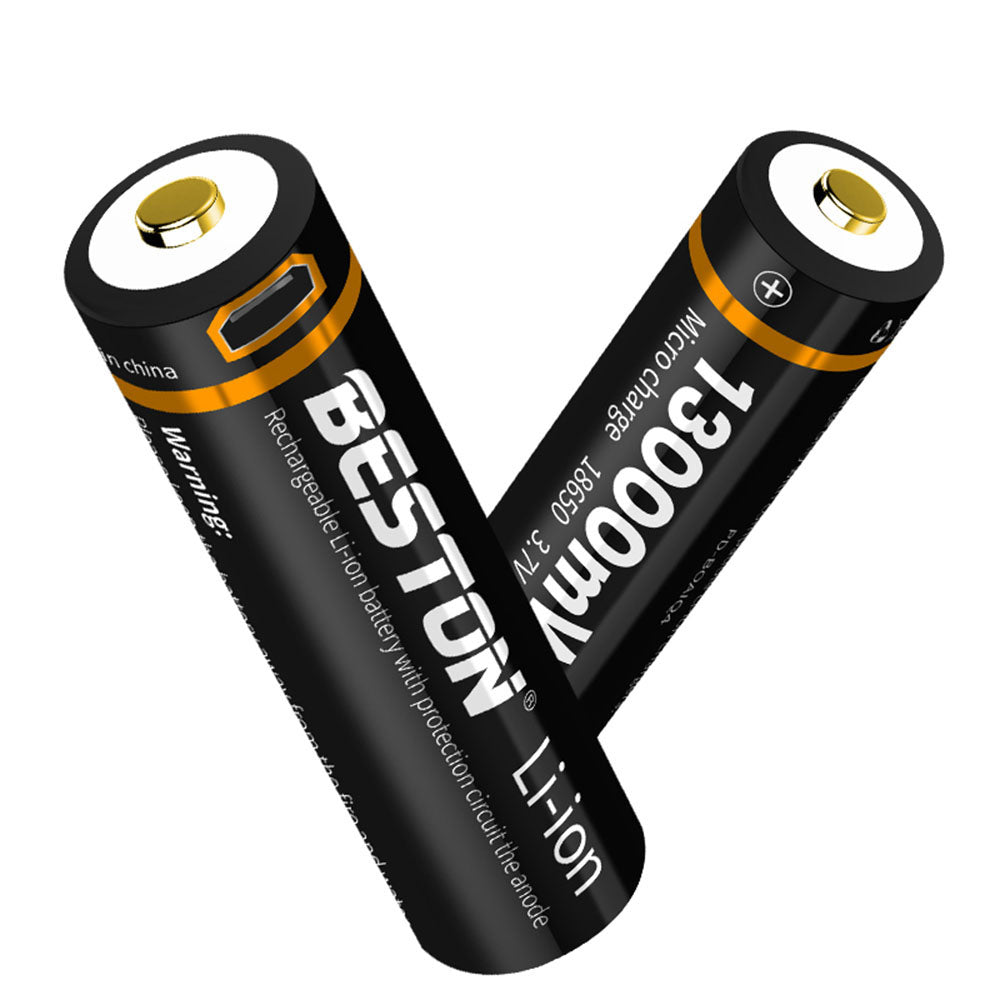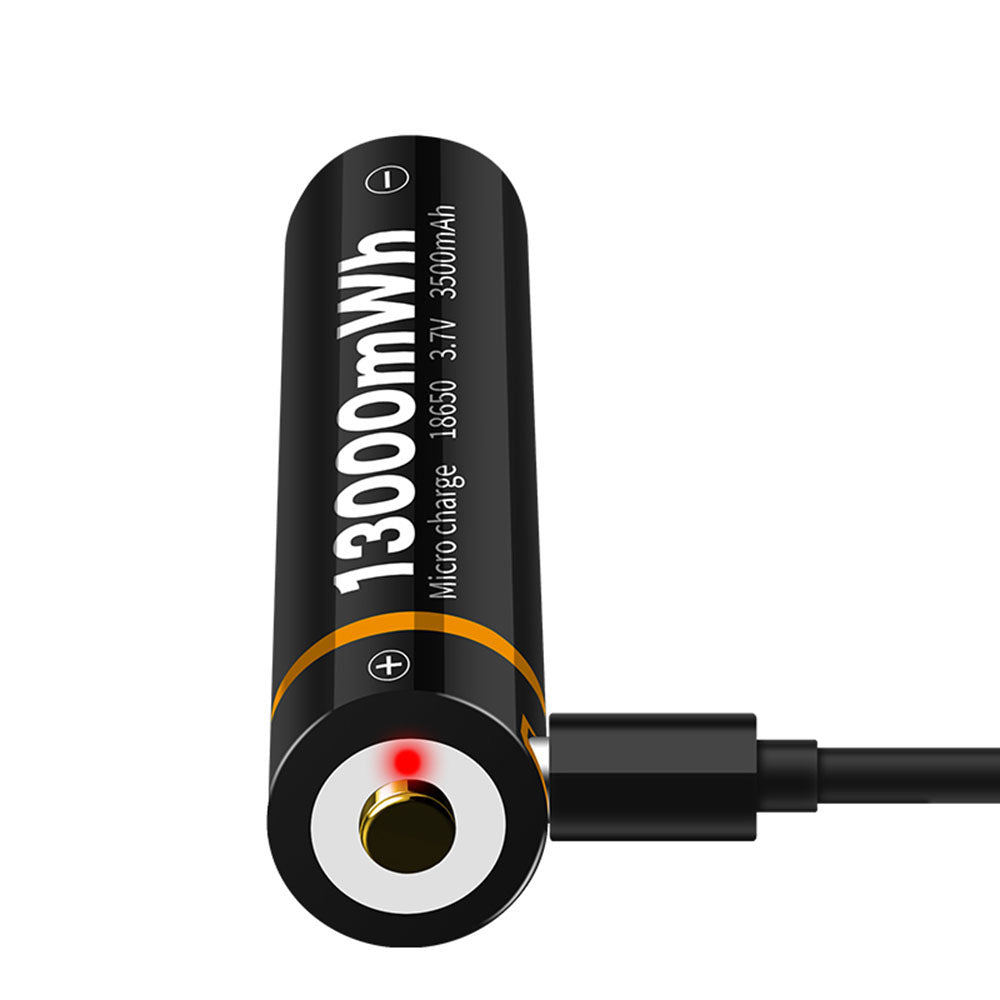-
Fornecedor:BATTERYINT
4 peças de Bateria 18650 3000mAh INR18650 30Q 20A para DIY Nickel
- Preço normal
- $29.90
- Preço normal
-
- Preço de saldo
- $29.90
- Preço unitário
- por
4 peças de Bateria 18650 30... -
Fornecedor:BATTERYINT
Bateria 3.7V 3000mAh 18650 Li-Ion Recarregável com Conector XH 2.54mm de 2 Pinos para RC Boat e Power Bank DIY
- Preço normal
- $10.90
- Preço normal
-
- Preço de saldo
- $10.90
- Preço unitário
- por
Bateria 3.7V 3000mAh 18650 ... -
Fornecedor:BATTERYINT
Informações do Produto da Bateria ICR18650-26J-2600mAh
- Preço normal
- $11.94
- Preço normal
-
- Preço de saldo
- $11.94
- Preço unitário
- por
Informações do Produto da B... -
Fornecedor:BATTERYINT
10x Bateria de Lítio NCR18650B 3.7V 3400mAh com Placa de Níquel para Soldagem
- Preço normal
- $49.99
- Preço normal
-
- Preço de saldo
- $49.99
- Preço unitário
- por
10x Bateria de Lítio NCR186... -
Fornecedor:BATTERYINT
2PCS 3.7V 3400mAh NCR 18650B Bateria de íon de lítio Flat Top 18650 Recargáveis
- Preço normal
- $9.88
- Preço normal
-
- Preço de saldo
- $9.88
- Preço unitário
- por
2PCS 3.7V 3400mAh NCR 18650... -
Fornecedor:BATTERYINT
Bateria Recarregável 4PCS 3.7V 18650 2600mAh ICR18650-26FM Bateria de Segurança
- Preço normal
- $18.88
- Preço normal
-
- Preço de saldo
- $18.88
- Preço unitário
- por
Bateria Recarregável 4PCS 3... -
Fornecedor:BATTERYINT
Konion US18650VTC5 2600mAh 3.6V - 3.7V 65.4x18.2mm com terminal de soldadura U
- Preço normal
- $7.99
- Preço normal
-
- Preço de saldo
- $7.99
- Preço unitário
- por
Konion US18650VTC5 2600mAh ... -
Fornecedor:BATTERYINT
Bateria 3.6V 2600mAh para Cortadores de Grama, Tesouras de Arbustos, Gardena 8812, Tesouras de Grama
- Preço normal
- $8.99
- Preço normal
-
- Preço de saldo
- $8.99
- Preço unitário
- por
Bateria 3.6V 2600mAh para C... -
Fornecedor:BATTERYINT
4 peças de Bateria 3.7V 3500mAh INR18650 20A de descarga 35E Li-ion recarregável
- Preço normal
- $19.99
- Preço normal
-
- Preço de saldo
- $19.99
- Preço unitário
- por
4 peças de Bateria 3.7V 350... -
Fornecedor:BATTERYINT
10PCS Nova Bateria NCR18650B 3.7V 3400mAh 18650 de Lítio, Bateria com Folha de Níquel para Soldagem
- Preço normal
- $59.90
- Preço normal
-
- Preço de saldo
- $59.90
- Preço unitário
- por
10PCS Nova Bateria NCR18650... -
Fornecedor:BATTERYINT
Bateria Li-Ion Recargável Astrolux C1830 3000mAh 3.7V 18650 sem proteção – Alta Performance 9.6A para Lanternas Nitecore, Lumintop, Fenix, Olight e Brinquedos RC
- Preço normal
- $28.94
- Preço normal
-
- Preço de saldo
- $28.94
- Preço unitário
- por
Bateria Li-Ion Recargável A... -
Fornecedor:BATTERYINT
Bateria de Lítio 3.6V 18650 Recarregável via USB Beston 3500mAh para Lanterna
- Preço normal
- $22.59
- Preço normal
-
- Preço de saldo
- $22.59
- Preço unitário
- por
Bateria de Lítio 3.6V 18650...
Showing 25 -36 of 68 items
1. What are 18650 batteries and what are they used for?
18650 batteries are rechargeable lithium-ion cells that measure 18mm in diameter and 65mm in length. They are widely used in a variety of applications, such as laptops, flashlights, power tools, electric vehicles, and e-cigarettes. These batteries are known for their high energy density, long lifespan, and stable performance, making them a popular choice for both consumer electronics and industrial applications.
2. How long does a lithium ion battery 18650 last?
The lifespan of a lithium ion battery 18650 depends on usage patterns and maintenance. Typically, these batteries last between 300 and 500 charge cycles. A charge cycle is counted as a full discharge and recharge. If properly maintained, a high-quality 18650 rechargeable battery can last for several years. To extend the battery’s life, it is recommended to avoid full discharges and keep the battery stored in a cool, dry place when not in use.
3. What is the difference between a li ion 18650 battery and other lithium-ion batteries?
The main difference between a li ion 18650 battery and other lithium-ion batteries lies in its specific size and application. The 18650 model refers to its standardized size (18mm x 65mm), whereas other lithium-ion batteries come in various shapes and sizes for different applications. However, like other lithium-ion batteries, 18650 lithium cells offer high energy density, a low self-discharge rate, and a longer lifespan compared to other battery chemistries.
4. Can I use a lithium 18650 rechargeable battery in any device?
A lithium 18650 rechargeable battery can only be used in devices specifically designed for 18650 cells. Many electronic devices that use cylindrical batteries, such as flashlights or power tools, are compatible with 18650 batteries. However, it’s essential to check the voltage and compatibility requirements of your device before using a new battery to prevent damage or unsafe operation. Some devices also require protected 18650 cells, which have built-in safety features.
5. How long does it take to charge a 3.7 volt battery 18650?
Charging times for a 3.7 volt battery 18650 depend on the battery's capacity and the charger used. On average, it takes around 4 to 6 hours to fully charge a typical 18650 rechargeable battery. Using a fast charger can reduce the time, but frequent fast charging may shorten the battery’s lifespan over time. It’s always recommended to use a high-quality charger designed for lithium-ion batteries to ensure safe and efficient charging.
6. How do I properly store 18650 batteries when not in use?v
To properly store 18650 batteries, it’s best to keep them in a cool, dry place away from direct sunlight and heat sources. Ideally, store the batteries at around 50% charge if you’re not going to use them for an extended period. Avoid leaving the battery fully charged or completely discharged during storage, as this can degrade the battery’s performance. Storing lithium 18650 rechargeable battery packs in a protective case can also help prevent accidental damage.
7. What safety precautions should I take when using a li ion lithium battery 18650?
When using a li ion lithium battery 18650, it's crucial to follow basic safety guidelines to avoid potential hazards. Always use the correct charger for the battery and avoid overcharging or deep discharging it. Do not expose the battery to extreme temperatures, as this can cause it to overheat or even catch fire. Additionally, inspect the battery regularly for signs of physical damage, such as swelling or leakage, and replace damaged 18650 lithium cells immediately.
8. What are the advantages of using 18650 lithium cells over other battery types?
18650 lithium cells offer several advantages over other battery types, including higher energy density, longer lifespan, and lower self-discharge rates. Compared to NiMH or NiCd batteries, 18650 rechargeable battery cells hold more power in a compact size and retain their charge better over time. They also have a longer cycle life, meaning they can be charged and discharged more times before losing capacity. These benefits make them ideal for high-performance and long-term applications.
9. How can I tell if my 18650 rechargeable battery needs to be replaced?
You may need to replace your 18650 rechargeable battery if you notice a significant drop in its performance. If the battery no longer holds a charge for as long as it used to or if it takes longer to charge, it could be a sign that the battery is nearing the end of its lifespan. Additionally, if you see any physical damage, such as swelling, leaking, or corrosion on the terminals, it's time to replace the battery for safety reasons.
10. Where can I buy high-quality 18650 batteries?
High-quality 18650 batteries can be purchased from reputable electronics stores, online retailers, and specialized battery suppliers. It’s important to buy from trusted sources to ensure that you are getting genuine products with proper specifications. Look for brands with a solid reputation in the battery industry and check for reviews or recommendations before making a purchase. Always make sure the li ion 18650 battery you choose is compatible with your device and comes with a warranty.


